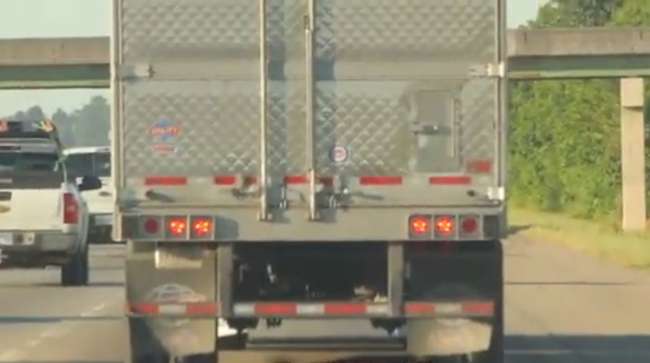Senior Reporter
Appeals Court Denies Review of Intellistop Exemption Request

[Stay on top of transportation news: Get TTNews in your inbox.]
A federal appellate court has rejected a court challenge by Intellistop Inc. of a decision by trucking regulators denying an exemption request to allow installation of the company’s pulsating brake light technology on heavy trucks.
The decision by a three-judge panel of the Court of Appeals for the District of Columbia puts to an end a two-year administrative battle between the Federal Motor Carrier Safety Administration and Michelle Hanby, of Arkansas, the owner of Intellistop, which has offered a pulsating brake technology that has been touted by the company as a system that could save lives by preventing rear-end accidents.
But the court did not agree with its allegations that the agency acted arbitrarily.
“We believe the FMCSA acted reasonably in denying Intellistop’s exemption and adequately explained that Intellistop provided insufficient data to support a blanket exemption for industry to alter the performance of a required lamp covered by [federal regulations],” the court wrote. “The FMCSA found Intellistop’s data insufficient for it to determine that the requested exemption would result in a level of safety equivalent to that required by its regulations.”

Hanby
However, the agency in its October denial did say it believed that previous research programs demonstrate that rear-signaling systems may be able to “improve attention getting to reduce the frequency and severity of rear-end crashes — though that benefit must be balanced against increased risk of driver distraction and confusion.”
The company filed the appeal in January, saying, “The only reason for the exemption request is to remove any lingering regulatory uncertainty created by a 1960s-era ‘Steady-Burning Rule’ requiring exterior vehicular lamps to remain ‘steady-burning.’ Because the administrative record clearly shows the [Intellistop] exemption would improve safety, the denial is unlawful.”
Even before the appeal was filed, several motor carriers lined up in support of the system, pledging to install it on their trucks if the court overruled FMCSA. Some of those companies have said they have evaluated the system and found it to be effective.
In written comments filed in 2021 supporting the Intellistop exemption, a number of carriers and other trade organizations, including American Trucking Associations, said the system had the potential to save lives and should be permitted.
“Because of the number of carriers that wish to use our product to reduce rear-impact crashes, it was worth the effort to try and overturn the original decision,” Hanby said after the court’s ruling. “This would save FMCSA the time and expense of dealing with potentially thousands of individual motor carrier requests, and it would allow carriers to more rapidly implement this life-saving technology if they desired.”
FMCSA has said it does not comment on litigation.

The makers of Transport Topics’ updated Top 100 For-Hire Carriers list examine trucking’s shifting business environment and what it means for the supply chain. Tune in above or by going to RoadSigns.ttnews.com.
However, FMCSA has said that rear-end crashes account for approximately 30% of all crashes. They often result from a failure to respond, or delays in responding to a stopped or decelerating lead vehicle. Data on crashes that occurred between 2010 and 2016 show that large trucks are consistently three times more likely than other vehicles to be struck in the rear in two-vehicle fatal crashes, the agency has noted.
Hanby said FMCSA in the past has granted five-year exemption requests to Grote Industries to add a flashing system to tank truck carrier Groendyke Transport and the National Tank Truck Carriers Association to use red or amber pulsing brake lights.
In its most recent exemption request, Groendyke noted that its past “real-world experience” demonstrated that use of amber pulsating brake-activated warning lamps in addition to steady-burning red brake lamps had decreased the frequency of rear-end accidents involving its fleet of tank trucks.
Groendyke said it had outfitted 632 of 1,440 trailers with pulsating brake lamps, analyzing the company’s rear-end collisions between Jan. 1, 2015, and July 31, 2017. During that period, the company ultimately determined that the pulsating brake lamps reduced the frequency of rear-end collisions by 33.7%.
Want more news? Listen to today's daily briefing below or go here for more info:




